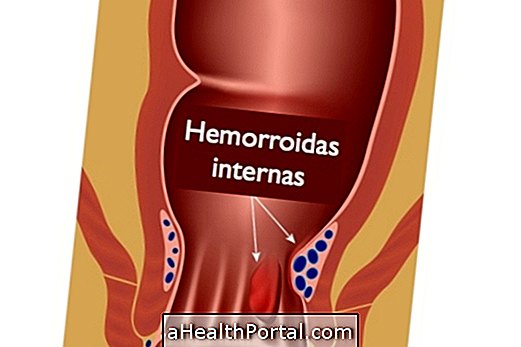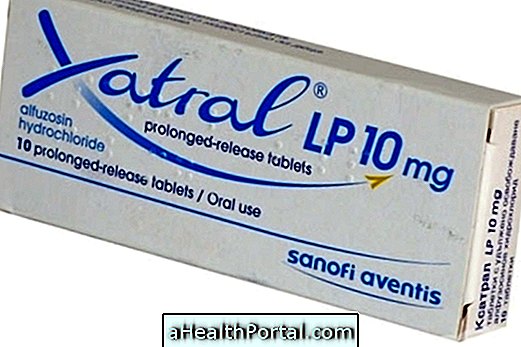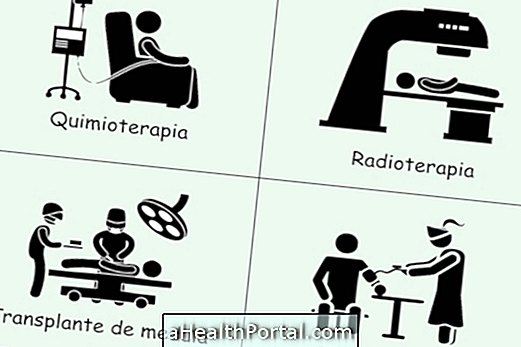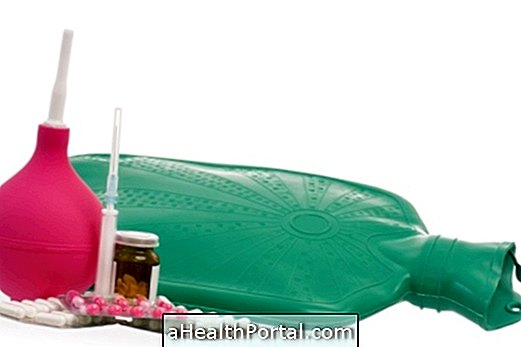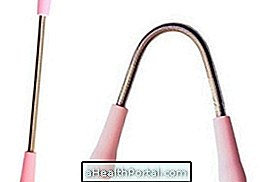Labyrinthitis is the inflammation of a structure inside the ear called a labyrinth, and its signs are more intense in the first 4 days of infection, decreasing over 3 weeks until they disappear.
If you think you may be suffering from labyrinthitis, select your symptoms to know your chances:
- 1. Difficulty maintaining balance Yes No
- 2. Difficulty focusing vision Yes No
- 3. Feeling that everything around is moving or running Yes No
- 4. Difficulty to hear clearly Yes No
- 5. Constant tinnitus in the ear Yes No
- 6. Constant headache Yes No
- 7. Dizziness or feeling dizzy Yes No
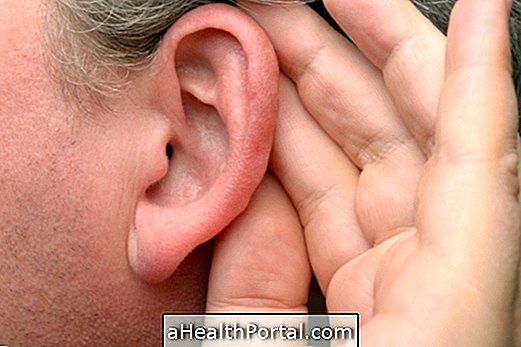
These symptoms usually come on suddenly and are very intense, gradually disappearing over time. However, they may reappear a few weeks later or when you move your head fast.
Thus, it is very important to consult an otorhinolist when suspected of labyrinthitis, to diagnose the problem and start the appropriate treatment, avoiding that the problem reappears.
Symptoms of emotional labyrinthitis
The symptoms of emotional labyrinthitis are the same, however, the person may also experience anxiety, stress, worry, sadness, easy crying or appetite changes because emotional labyrinthitis is related to emotional problems such as anxiety or depression.
See more about the causes and treatment here.

Possible causes
Labyrinthitis is caused by an inflammation of the labyrinth, a structure that is part of the inner ear. This usually happens due to:
- Respiratory problems such as bronchitis;
- Viral infections, such as colds or flu;
- Herpes;
- Bacterial infections such as otitis.
However, labyrinthitis is more common in people who smoke, drink too much alcohol, have a history of allergies, frequent use of aspirin, or are under a lot of stress.
How to treat labyrinthitis
Treatment for labyrinthitis should be indicated by an otolaryngologist and can usually be done at home with rest in a dark, no-noise location. In addition, home treatment for labyrinthitis should also involve the ingestion of liquids, such as water, tea or juice, until symptoms improve. Here's how to do a labyrinthine diet and find out what you can not eat.
The doctor may also prescribe the use of labyrinthine remedies, which may include antibiotics such as Amoxicillin, which should be taken up to about 10 days to fight infection. Other nausea medications, such as Metoclopramide and corticosteroid remedies, such as Prednisolone, can also be used to help reduce discomfort. See more about how the treatment is done and which remedies for labyrinthitis.

